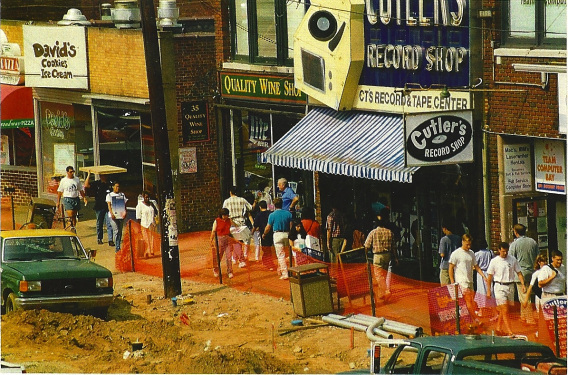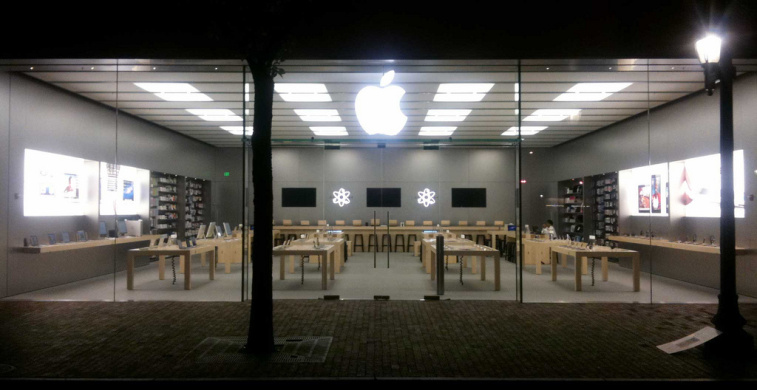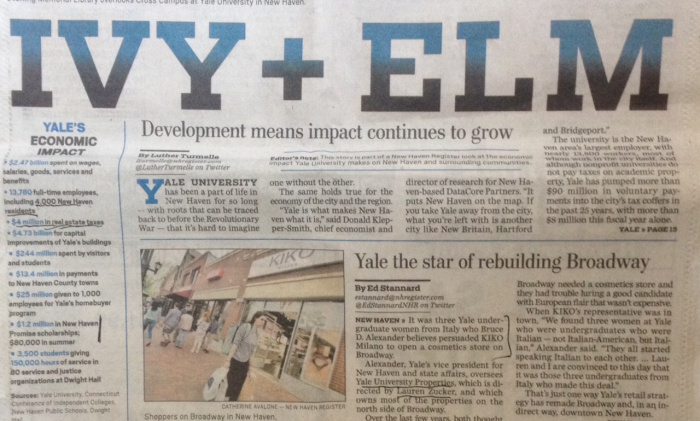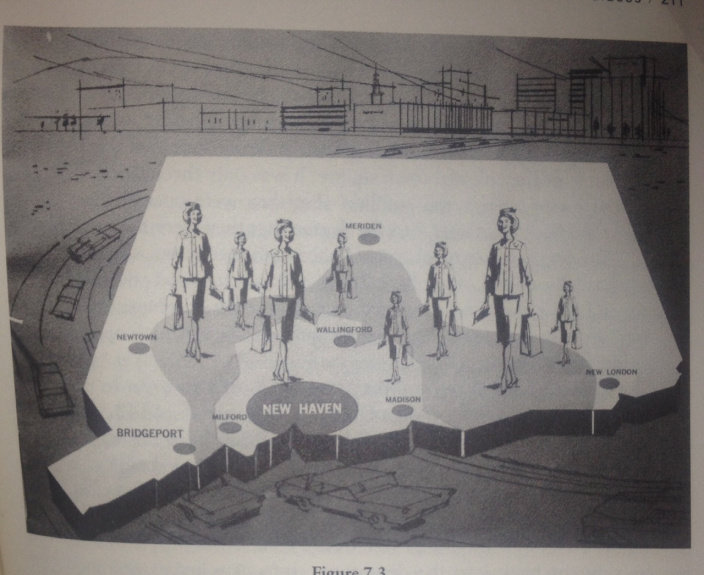by Michael Lee-Murphy
Sunday May 17 was graduation day for Yale University. The day is more properly called commencement, and refers to the time when Yale graduates commence the part of their lives when they don’t live in New Haven. The day was marked by the full closure of several blocks of downtown, massive police presence, and sun dresses. The interchange of I-91 and I-95 was completely closed for a full half hour to allow for the escape of Joe Biden, who had addressed the graduating class.
I was on the corner of York Street and Broadway when Biden’s motorcade happened to pass. It’s been a pastime of many in New Haven to complain that Yale’s recent restructuring of the Broadway strip has been to effectively keep the non-White and poorer populations of the predominantly Black Dixwell neighborhood away from Yale. This was at the very least the result, if not the outright goal, of the University’s buying up of most of the property on the block. An article in Sunday’s paper, however, laid bare the racism at the heart of Yale’s machinations. Ethnic and economic cleansing was the desire as well as the result.
Sunday’s edition of the New Haven Register featured a front page with two stories both running several thousand words in length about what a great place Yale is, and what the school has done for New Haven. You could read in the paper what the cops and the secret service were telling you in the street through barricades and wags of the finger. Stay away, this is not for you.
The stories hung under the massive blue headline IVY + ELM, a photo of the Sterling Memorial Library and the text:Yale pumps more than $2B a year into city, region. The headline cleverly merges the city and the region as if the divided politics of the two in real life isn’t one of the big problems about urban policy in Connecticut.
One of the stories, by Yale beat reporter Ed Stannard, ran just over 3,000 words. The headline in the print edition gave us two words for the act Yale has performed upon Broadway. “Yale the star of rebuilding Broadway,” read the print version, while the web version of the story reads “Yale University and New Haven team up to remake Broadway for retail, restaurants.” Already there are some interesting differences between the version of the story meant for single day consumption, and the version archived to the internet.
“Remake” means “make something again, or differently.” Rebuild means “build (something) again after it has been damaged or destroyed.” So which act has Yale performed upon Broadway?
Yale’s Vice President for New Haven Affairs Bruce Alexander, of whom the article is essentially a profile, gives us yet a third word for the act Yale has performed upon Broadway. From the article:
“Alexander said he was walking on York Street near Broadway and noticing litter and storefronts such as barbershops and liquor stores. Since Yalies went through the area on their way to the Yale Co-op, he thought it needed an upgrade.”
An upgrade. A remake. A rebuild.

When was Broadway damaged or destroyed so as to be rebuilt? Why would the Sunday print edition of the paper need to imply that it was? The headline and the article itself was quite obviously geared toward the parents of Yale students in town for the weekend, looking for a souvenir of the day. The choice of headline, articles, and layout reflects what is a truism about Connecticut’s cities in general: they are not built for the people that live in them, especially in the era of late capitalism.
“Poor people will not be allowed to ruin the mall. People of color will not be allowed to ruin the mall. Barbershops will not be allowed to ruin the mall. New Haven is a mall and Yale kids are its customers.”
The article doesn’t say when Alexander had this stroll along York Street and slouched toward Broadway, but Alexander has been Yale’s downtown property man since the late 1990s. Before he came to Yale, Alexander negotiated with cities throughout America to build malls for the Rouse Company. The complaint of many that Broadway now feels like a mall rather than a city block is not a curmudgeonly gripe about the good ol’ days: that has been Yale’s goal for Broadway from the start.
Brian McGrath, the business manager of Chapel West Special Services District — a sub-municipal development organization with its own taxation and zoning policies, currently trying to change the name of the Dwight neighborhood to Chapel West — illuminated to the Yale Herald in 2012 Yale’s philosophy behind the redevelopment.
“If you want synergy, and you want the maximum number of customers, you need to run it like a mall. You need everyone opening and closing at the same time. You have some stores that close early? That’s going to ruin your mall. You can’t have a customer leaving trash on the sidewalk—that’s going to ruin your mall. You can’t have a customer attracting bums—that’s going to ruin your mall.”
This fear of their mall being ruined led Yale to force out a number of undesirable businesses along the road. Streetview on Google Maps has a feature which allows you to take a cyberstroll down Broadway and compare what the street looked like in 2008 to what it looks like now. The Yale Co-op, a locally owned bookstore, was forced out in favor of a Barnes & Noble branch. Next door, the new Apple store gleams into the night, and happily offers workshops to the New Haven Police Department. Next to the Apple store is the building York Sq Cinema used to share with a store selling Yale themed clothing. York Sq closed in 2005 and the building is now entirely Campus Customs. Cutler’s Record Store. Quality Wine and Liquors. Even the Au Bon Pain at the intersection with York was seen to be not fit for Yale’s purposes when Yale decided not to renew its lease back in 2013.

Yale has had varying degrees of involvement with the closure of these businesses — Yale said it loved Cutler’s — but at the very least, the Art House theater, record store crowd ain’t the J Crew Kiko Milano crowd.
There were usually homeless people outside or inside the Au Bon Pain. Now they are gone. No longer will the homeless of New Haven be allowed to ruin the mall. Now the location is a “Emporium DNA,” where you can get a pair of shiny trousers for the price of a month’s rent.
But for Win Davis, the executive Director of the Town Green Special Services District, it is the Apple store that is the jewel in the shitcrown that is the new Broadway. The store is “a huge get. … That’s a huge bellwether for our retail community and what is difficult about retail and something that Yale has helped us overcome is talking with people and getting people to come to town despite the census data.”
There are only two possibilities for what “despite the census data” means here: either despite the people of color, or despite the poor people. In New Haven’s segregation, there is significant overlap between the two categories.
Poor people will not be allowed to ruin the mall. People of color will not be allowed to ruin the mall. Barbershops will not be allowed to ruin the mall. New Haven is a mall and Yale kids are its customers.

It is further unclear in the above quote which “people” Davis was trying to convince to come to New Haven. Either he means national chains who want to sell their high-end shit despite the fact that 25% of New Haven residents live below the poverty line, or suburban types who would come into town, but have been looking at the census data and doing reconnaissance on the skin color of the people that live there and they don’t like what they see. Let us keep the community away so we can bring in a retail community, which along with synergy is an unspeakably horrible phrase that only signals the destruction of things we hold dear.
The remaking of Broadway as a mall is in fact a very old tradition in New Haven, representing no new ideas. As Mandi Isaacs Jackson details in her book Model City Blues, the 1960s saw an effort to “remake” New Haven as “New England’s Newest City,” as if there was no New Haven that existed before.
Here’s a 1960 pamphlet from New Haven’s Redevelopment Agency replicated in Jackson’s book, with an army of zombie housewife shoppers lurching toward New Haven.
As Jackson writes,
“[G]eographer Don Mitchell argues that inherent in spaces like the new downtown “shopping mecca” is the ‘perceived need for order, surveillance, and control over the behavior of the public.’ The primary aim of corporate planners, like those who planned New Haven’s new downtown shopping, parking, and hotel center, argued Mitchell, was to impose ‘limits and controls on spatial interaction.’ In this way, public spaces such as malls, shopping centers, and redeveloped downtowns become what Mitchell calls ‘spaces of controlled spectacle.’ But Mitchell also asserts that such spaces have never actually been inclusive, even in their most basic early forms–such as the forum of ancient Rome or the colonial town square. It was only through what he calls ‘concerted social protest and conflict’ that they were opened up. ‘Spaces were only public,’ he asserts, ‘to the degree that they were taken and made public.’”
Broadway must be made public again. They’ve ruined Broadway by making it a mall. We have to ruin it back.
Later Jackson quotes historian Eric Hobsbawm, who says that “the rebuilding and reorganization of cities is one of three strategies employed by the state to counter urban insurrections.”
Indeed, during New Haven’s last major insurrection of May Day 1970, Liggett’s (where the $1000 shiny pants store is now) boarded up and demanded freedom for the imprisoned Black Panthers of the city.

Broadway is just one block in Yale’s master plan. Of Yale’s properties, only $108 million’s worth is taxable, bringing in $4.49 million in tax into New Haven. Yale owns a separate $2.5 billion dollars worth of property that goes untaxed. Here is a map of their empire.
The arguments defending Yale’s designs for large parts of the city usually feature some variation of this: “New Haven without Yale would be Bridgeport or Hartford.” Whether this is more insulting and condescending to the people of New Haven who have no involvement with Yale, or to the people of Hartford and Bridgeport is an open question. The other argument is often, “We need Yale for the money it brings in to the city.” This argument is a variation on the first, and we hear it parroted anytime Yale buys up another street (literally), or forces out a locally owned store for a high-end chain.
This is the nerdish warbling of a company stooge, and it makes us all look like assholes. As a friend pointed out in a Facebook discussion about this, that argument almost completely overlooks the fact that the money Yale brings into New Haven is meant to be circulated within Yale’s properties. The whole point of the rebranding of Chapel Street and Broadway as “The Shops at Yale” is that Yale money never gets spent at something that is not Yale-owned, and furthermore to keep non-Yale people away from the area. (Observe the closing of the Anchor, as an example.) The other work the argument performs is that it turns every complaint about Yale’s behavior into an argument about Yale’s existence. This this the Stockholm syndrome of a hostage. We need them, so we can’t criticize them.
Certainly it strikes me as the same type of thinking that would operate in the coal towns of Appalachia, where, robbed and exploited by the company store, the townsfolk plead with the company to be nice to them.

Is New Haven a place of its own, or is it a company town? (And let’s be clear: Yale is a company as much as or even more than it is a University. Its University Properties real estate holding company has done things like buying out locally owned stores and leaving the storefront vacant because they didn’t like the fact that booze was being sold so close to campus.)
What is the purpose of New Haven? Is it for the people that live there to be able to live happy lives, or is it for Yale to crank out raw materials and provide these raw materials with ample shopping opportunities?
Let’s ruin the mall. They haven’t won yet. Skate it like Jim Greco did in the 1990s. Wear punk patches. Be drunk. Sneer. Don’t buy. Don’t cede.
Michael Lee-Murphy is a reporter and writer based in New England, USA. He has written for Jacobin, Ricochet Media, and Maisonneuve Magazine.
This story originally appeared on Michael Lee-Murphy’s blog, A Furious Return to Basics.

